Higher education is being reshaped by rapid change and leadership matters more than ever. This fall, we welcomed Ajay Khorana, PhD, as dean of the Lubin School of Business and Brian Goldstein, PhD, as dean of the College of Health Professions, two accomplished leaders whose expertise bridges academic rigor, industry insight, and student outcomes.
One Pace Plaza East: A Look Ahead to Fall 2026
With Fall 2026 approaching, One Pace Plaza East is quickly moving from construction site to campus centerpiece. The transformational renovation is well underway, bringing new life to one of Pace University’s most iconic buildings.


With Fall 2026 approaching, One Pace Plaza East is quickly moving from construction site to campus centerpiece.
The transformational renovation is well underway, bringing new life to one of Pace University’s most iconic buildings. When it opens, One Pace Plaza East will be home to a state-of-the-art Performing Arts Center, dynamic academic and creative spaces for the Sands College of Performing Arts, Dyson College, and University-wide programs, along with refreshed residential spaces in Maria’s Tower.
Inside the building, major milestones have already been reached. Excavation and foundation work for the reimagined Schimmel Theater are complete, and the structural systems supporting the expanded stage, fly tower, and audience chamber are now in place. Double-height volumes for the Garden Theater, Blackbox Theater, and large dance rehearsal studio are clearly taking shape, revealing the scale and ambition of the project.
The building is being designed as both a performance destination and a hands-on learning environment. From expanded catwalks and flexible rehearsal spaces to podcast studios and maker areas, One Pace Plaza East is built to support creativity, collaboration, and interdisciplinary work. Sustainability is also central to the project, with an all-electric infrastructure supporting Pace’s broader decarbonization goals.
As construction continues through 2026, One Pace Plaza East is becoming a creative hub where students will learn, create, and perform in the heart of downtown Manhattan.
One Pace Plaza East: By the Numbers
- 10 new dressing rooms serving all performance venues
- 80 dressing room seats across the Schimmel, Garden, and Blackbox Theaters
- 6 theater boxes with 24 seats in the new Schimmel Theater
- 50 new linesets in the Schimmel fly tower
Linesets are rigging systems that allow scenery, lighting, and curtains to be raised and lowered during productions. - 9 steel strong points in the Large Dance Studio ceiling supporting the Aerial Dance program
- High-performance sprung floors made with long-lasting fiberglass in dance rehearsal studios
- 4 new podcasting studios for teaching and production
- More than 5,000 light fixtures and accessories for theaters, classrooms, and support spaces
- 560 doors in Maria’s Tower
- A new home for the Pace Zine Library
One Pace Plaza East Construction Photos
Want to learn more about the new spaces set to open in Fall 2026? Visit our page dedicated to all things One Pace Plaza East.
More from Pace Magazine
It’s 2026, and Pace University is turning 120. We’re kicking off a yearlong celebration of the people, places, and moments that have shaped our community since 1906. This is just the beginning—stay tuned for stories, events, and ways to get involved all year long.
Broadway stages. Global policy wins. A first-of-its-kind AI degree. Record-breaking generosity. And students leading real change—from healthcare and environmental advocacy to protecting New York’s wildlife. The Winter 2026 edition of "10 Things to Inspire You" captures just a snapshot of the momentum driving the Pace Community forward.
10 Best Business Degrees for High Pay and Career Growth
Start your business career on the right path with our guide to the best business degrees.


As a prospective business major, you have a world of opportunity ahead. From undergraduate paths like the BS and BBA to graduate degrees such as the MBA, each option leads to diverse career paths in fields like finance, data analytics, and global management. But which degree offers the best return on investment? This guide helps you explore business degrees with the potential for high pay and significant career growth.
Here’s what you need to know about business degrees linked to high-paying careers.
Types of Business Degrees:
There are two different degree tracks associated with careers in business: business administration degrees, which focus on business leadership and managerial skills, and science degrees, which take a more technical approach to data, economics, finance, and data analytics.
Undergraduate
- Bachelor of Science (BS): An undergraduate degree emphasizing quantitative and analytical skills for business. Students study core disciplines like economics and business economics, with a focus on data-driven decision-making and technical skills. This degree prepares graduates for careers in business operations, data analysis, and specialized corporate roles.
- Bachelor of Business Administration (BBA): An undergraduate degree centered on business and management principles, covering areas of entrepreneurship, finance, marketing, project management, and accounting. Graduates of this track are prepared for leadership roles and specialized business functions.
Graduate/Postgraduate
- Master of Science in Business (MS): A graduate degree offering specialized expertise in fields such as finance, marketing, or analytics. This degree caters to students seeking advanced technical and analytical skills for deeper expertise in a specific area of business.
- Master of Business Administration (MBA): A graduate degree focused on general management and leadership skills, covering a range of business disciplines. Often includes practical experiences through internships or capstone projects, preparing students for executive and managerial roles.
Specialized tracks may include:- Accounting, MBA
- Arts and Entertainment Management, MBA
- Business Administration, MBA/Law, Juris Doctor, JD
- Business Analytics, MBA
- Corporate Finance, MBA
- General Business, MBA
- Information Systems, MBA
- Investment Management, MBA
- Marketing Analytics, MBA
- Marketing Management, MBA
- Strategy and International Business, MBA
- Doctorate: For those seeking the highest level of expertise in business, the Doctor of Professional Studies (DPS) is an executive-format doctoral degree designed for experienced professionals looking to enhance their strategic and analytical capabilities. This program emphasizes applied research and leadership development, preparing grads for senior-level roles in business and academia.
Why Earn A Business Degree?
Outlined benefits include career advancement, networking opportunities, and high earning potential. Earning a business degree makes it much easier to:
- Expand your career opportunities: A business degree opens doors to industries like finance, marketing, management, and entrepreneurship, giving you a range of career paths.|
- Build a professional network: Connect with industry professionals, alumni, and peers, creating a valuable network for future opportunities.
- Boost your earning potential: Gain access to well-paying roles in fields like management, consulting, and corporate leadership.
- Develop entrepreneurial skills: Gain essential knowledge in accounting, marketing, and operations to start and grow your own business.
- Strengthen your leadership and management skills: Courses emphasize strategic thinking, leadership, and problem-solving—key to effective team and project management.
Best Paying Business Degrees
There are dozens of different types of business degrees, from general business management to degrees that specialize in particular fields or industries. Business and related disciplines, such as finance, are among the highest-paying degrees for undergraduate students, and have some of the highest potential earnings for top executives. Here’s what you need to know about ten of the most popular and highest-paying business degrees.
Accounting
An accounting degree will prepare you for a highly successful career managing finances. You’ll study financial reporting, tax laws, auditing, and strategic planning, utilizing your skills to analyze and manage financial data effectively. As a graduate with a degree in accounting, you’ll be qualified for diverse financial roles in corporate finance, government agencies, public accounting, and consulting. A BBA in Accounting will provide you with the foundational advantage to pass the CPA exam, while master’s programs such as Accounting Data Analytics and Technologies give you an advantage in advancing to management positions.
| Industries that are hiring graduates with business degrees in accounting include: | |
|---|---|
| Public Accounting | Healthcare |
| Financial Services | Technology |
| Government Agencies | Consulting |
The job outlook for this area is strong, with an estimated job growth of 5% over the next ten years. High-paying jobs and salary estimates* for graduates with accounting degrees include:
- Chief Financial Officer (CFO): $253,000–$442,000+
- Financial Analyst: $92,000–$142,000
- Forensic Accountant: $88,000–$135,000
- Internal Auditor $94,000–$155,000
Business Administration and Management
Business administration continues to be one of the most popular degrees in the U.S., and for good reason. This versatile degree equips you with the skills to work in management and leadership roles across various industries. A business administration program provides a broad education in business principles, including management, marketing, finance, and operations. You have several choices within a business administration track, from a General Business degree to combined BBA/MBA programs. There are also hybrid MBA and Juris Doctor programs for students who want to specialize in legal risks and opportunities.
| Industries that are hiring graduates with degrees in business administration include: | |
|---|---|
| Financial Services | Consulting |
| Healthcare | Retail |
| Technology | Manufacturing |
The job outlook for this area is strong, with an estimated job growth of 4% over the next ten years. High-paying jobs and salary estimates* for graduates with business administration degrees include:
- Chief Operating Officer (COO): $255,000–$446,000+
- Management Consultant: $120,000–$217,000
- Business Development Director: $236,000–$416,000
- Global Business Manager: $231,000–$394,000
Business Analytics
More than ever, today’s data-driven society needs skilled professionals who can analyze and manage data to make effective business decisions. A business analytics degree teaches you skills in data analysis, statistical modeling, and business intelligence, enabling you to make data-driven decisions that enhance organizational performance. As a graduate of this program, you’ll learn to leverage data to identify trends, solve complex business problems, and optimize strategies across various functions. A Business Analytics, BBA will provide you with a strong, interdisciplinary foundation in analytics, while the Business Analytics, MBA offers advanced training in descriptive, predictive, and prescriptive analytics.
| Industries that are hiring graduates with degrees in business analytics include: | |
|---|---|
| Financial Services | Retail |
| Technology | E-commerce |
| Healthcare | Consulting |
The job outlook for this area is strong, with an estimated job growth of 9% over the next ten years. High-paying jobs and salary estimates* for graduates with business analytics degrees include:
- Business Analyst: $86,000–$143,000
- Data Analyst: $74,000–$126,000
- Market Research Analyst: $81,000–$136,000
- Operations Analyst: $78,000–$128,000
Business Technology
The modern digital revolution continues to change all aspects of business, from the types of work we do to how we build our industries. With a degree in business technology, you’ll be an expert in how technology can be best used to improve efficiency and develop innovative solutions. Business technology combines foundational business knowledge with specialized training in information technology to help you optimize tech solutions for business challenges and strategic goals. A Business Technology degree is a bridge between business and IT, providing you with training in systems analysis, digital transformation, and technology management.
| Industries that are hiring graduates with degrees in business technology include: | |
|---|---|
| Technology and IT Services | Consulting |
| Financial Services | Retail |
| Healthcare | Manufacturing |
The job outlook for this area is very strong, with an estimated job growth of 15% over the next ten years. High-paying jobs and salary estimates* for graduates with degrees in business technology include:
- Chief Information Officer: $268,000–$452,000+
- IT Director: $143,000–$243,000
- Database Manager: $82,000–$145,000
- Technology Business Strategist: $158,000–$279,000
Entrepreneurship
Passionate about forging your own path? Then a business degree in entrepreneurship can help provide the skills, experience, and networking to help you start, manage, and grow your own business. Entrepreneurship programs cover essential areas for successful and efficient management, including venture creation, finance, marketing, and strategic planning. Graduates with either a minor in entrepreneurship or a full BBA in Entrepreneurship learn how to innovate within established companies or launch their own startups, with a focus on creativity, risk management, and business scalability.
| Industries where graduates of entrepreneurship programs can find success include: | |
|---|---|
| Startups and New Ventures | Financial Services |
| Technology | Nonprofit |
| Consulting | Retail and E-Commerce |
The outlook for this area is strong, with an estimated job growth of 9% over the next ten years for managers and consultants, while the U.S. Treasury reports a surge in business applications and optimism among business owners. High-paying jobs and salary estimates* for graduates with degrees in entrepreneurship include:
- Entrepreneur: $130,000–$500,000+
- Strategy Consultant: $120,000–$224,000
- Venture Capitalist Analyst: $117,000–$204,000
- Product Manager: $120,000–$207,000
Finance
If you enjoy working with finances, then a finance degree—either as a finance minor or major—will provide you with the expertise to manage and optimize financial assets. Whether you choose to pursue an MS in Financial Operations and Technology or an MBA in Corporate Finance, you’ll acquire specialized skills in analysis, theory, and practice for financial analysis, investment strategies, and risk management. A financial manager is an asset to every field of business, offering invaluable insights on markets, advising on investments, and guiding companies in achieving financial stability and growth.
| Industries that are hiring graduates with finance degrees in business include: | |
|---|---|
| Financial Services | Consulting |
| Investment Banking | Technology |
| Corporate Finance | Insurance |
The job outlook for this area is very strong, with an estimated job growth of 15% over the next ten years. High-paying jobs and salary estimates* for graduates with finance degrees include:
- Chief Financial Officer: $255,000–$446,000
- Controller: $140,000–$241,000
- Financial Planning and Analysis Manager: $137,000–$198,000
- Investment Banker: $277,000–$513,000
Healthcare Management
You don’t have to train as a doctor or nurse to play a critical role in the healthcare industry. Earning your BBA in Business Management and then progressing to an MBA in GeneralBusiness will provide the essential training you need to oversee healthcare facilities, manage budgets, ensure regulatory compliance, and improve patient care quality. Whether your degree is directly in Health Administration or you design your own course of study through electives, you'll develop leadership and operational skills tailored to the healthcare sector, preparing you to address the unique challenges of managing medical institutions and health services.
| Industries that are hiring graduates with business degrees in healthcare management include: | |
|---|---|
| Hospitals and Healthcare Systems | Consulting |
| Pharmaceutical Companies | Public Health Organizations |
| Health Insurance | Medical Device Companies |
The job outlook for this area is very strong, with an estimated job growth of 23% over the next ten years. High-paying jobs and salary estimates* for graduates with business degrees in healthcare management include:
- Hospital Administrator: $97,000–$178,000
- Director of Health Information Management: $120,000–$202,000
- Pharmaceutical Project Manager: $123,000–$218,000
- Healthcare Consultant: $134,000–$228,000
Human Resources Management
Years after the COVID-19 disruptions brought some of the highest employee turnover rates in recent history, effectively finding qualified labor remains one of the highest priorities for every industry. If you enjoy addressing challenges in the workspace, then there’s always a need for specialists in human resources. Earning your BBA in Human Resources Management will build the foundational knowledge of how to foster a productive work culture and recruit, develop, and manage talent. An MS in Human Resources Management provides a higher-level understanding of organizational behavior, labor relations, and employment law, preparing you for HR leadership roles across various sectors.
| Industries that are hiring graduates with business degrees in human resources management include: | |
|---|---|
| Technology | Consulting |
| Healthcare | Financial Services |
| Manufacturing | Nonprofit |
The job outlook for this area is strong, with an estimated job growth of 5% over the next ten years. High-paying jobs and salary estimates* for graduates with business administration degrees include:
- Human Resources Director: $218,000–$348,000
- Compensation and Benefits Manager: $139,000–$228,000
- Labor Relations Manager: $141,000–$246,000
- Talent Acquisition Director: $283,000–$481,000
International Business
Interested in doing business on a global scale? A degree in International Business can prepare you to work with some of the largest enterprises in the world by providing you with the skills needed for international strategy, finance, and operations. Students of International Management BBA and International Business and Strategy MBA programs learn how to navigate the complexities of global markets, trade regulations, and cross-cultural management. This business degree offers a deep understanding of global economics, foreign markets, and the challenges of international business expansion that can be applied across a range of business disciplines.
| Industries that are hiring graduates with degrees in international business include: | |
|---|---|
| International Trade and Export | Consulting |
| Financial Services | Manufacturing |
| Technology | Retail and E-commerce |
The job outlook for this area is strong, with an estimated job growth ranging from 4% to 6% over the next ten years, depending on the area of specialization. High-paying jobs and salary estimates* for graduates with international business degrees include:
- Global Business Development Director: $237,000–$422,000
- Foreign Currency Investment Advisor: $183,000–$341,000
- International Management Consultant: $120,000–$217,000
- International Trade Compliance Manager: $117,000–$191,000
Marketing
Businesses are competing to win customer loyalty and build brand awareness across more communication channels than ever before, and they need help from skilled marketers. If creating, promoting, and delivering marketing and communication campaigns to customers sounds exciting, then you should consider a business degree in marketing. You could learn strategic brand management in Advertising and Integrated Marketing Communications, digital advertising in Digital Marketing, international messaging in Global Marketing Management, or master social media marketing with an MS in Social Media and Mobile Marketing. No matter your specialization, these business degrees will prepare you for marketing management roles in various sectors.
| Industries that are hiring graduates with business degrees in marketing include: | |
|---|---|
| Advertising and Public Relations | Healthcare |
| Technology | Financial Services |
| Retail and E-Commerce | Media and Entertainment |
The job outlook for this area is strong, with an estimated job growth of 6% over the next ten years. High-paying jobs and salary estimates* for graduates with business administration degrees include:
- Chief Marketing Officer: $230,000–$399,000
- Digital Marketing Director: $162,000–$266,000
- Director of Communications: $121,000–$205,000
- Brand Manager: $109,000–$199,000
*Salary estimates were sourced from Glassdoor and are based on the New York Metro area.
Which Business Degree Should You Choose?
How do you choose between these popular business degree specializations? It’s an important decision, so as you consider your options, make it a two-step process.
1: Consider your personal career journey
Define your business career path by first identifying what excites you and aligns with your values. Knowing what matters most to you can guide you toward the right business degree.
- Set your career goals: Where do you see yourself long-term? Is a high salary your top priority, or is it the type of work you’ll be doing? Are there specific industries that interest you? University Career Services can help you clarify your goals and explore options.
- Focus on your interests: Do you enjoy working with people, crunching numbers, or crafting creative marketing campaigns? Choose a degree that aligns with your strengths and interests—whether that’s finance, marketing, or entrepreneurship.
- Research market trends: Staying informed about current and future job demands helps you gain highly valuable skills and guides you toward growth areas. When you’re deciding between interests, focusing on a field with strong growth potential can give you direction.
- Plan your academic journey: For many business roles, a BBA, MS, or MBA is essential. Look into accelerated BBA-to-MBA programs that help you reach your goals faster and stand out in the job market.
2: Explore what different programs offer
As you decide what you want from a business program, start exploring the specific opportunities different programs offer. Consider the following elements to help guide your research.
- Program specializations and courses: Seek programs with specializations that align with your career vision and goals.
- Experiential learning opportunities: Pursue programs rich in experiential learning, like internships, co-ops, or hands-on projects that give you real-world experience.
- Location and network: Leverage the program’s geographic location and networking opportunities to expand your professional connections.
- Accreditation and reputation: Make sure the business school is accredited by recognized bodies, such as AACSB, which indicates quality and rigor.
- Flexibility and format: Find programs with flexible learning formats, whether part-time, evening, or online options, to fit your schedule.
- Faculty expertise: Look for faculty members who bring both academic and industry experience, providing you with insights directly from the business world.
- Return on investment (ROI): Evaluate ROI by considering the program’s cost relative to the career opportunities it opens.
FAQ
What is the highest-paying degree in business?
Some of the highest-paying business degrees include MBA specializations in finance, entrepreneurship, and information systems, as well as undergraduate degrees in finance, accounting, and economics. These fields open doors to high-demand roles in investment banking, consulting, and financial operations.
Keep in mind that salaries can vary significantly based on industry, experience, and location. To choose a path that aligns with your career goals, consider not only potential earnings but also your interests and long-term aspirations.
Can I make $100k with a business degree?
Yes, a business degree can lead to a six-figure salary, especially in fields like finance, consulting, or tech management. Choosing a business degree program that offers practical business experience, networking opportunities, and access to advanced degrees such as MBAs or an MS in Business can further boost your salary.
What are the most sought-after business degrees?
The most sought-after business degrees include accounting, business analytics, finance, marketing, and management. These fields prepare you for high-demand roles in areas like financial planning, digital marketing, data analysis, and operations. Degrees with a focus on technology, such as information systems or business analytics, are especially valuable as companies increasingly rely on data-driven decision-making.
What are the most popular business majors?
The most popular business majors include finance, marketing, accounting, management, and business administration. These programs equip students with essential skills such as financial analysis, consumer behavior, strategic planning, and leadership, preparing them for diverse roles in corporate, nonprofit, and entrepreneurial settings. Business majors with a technology focus, such as business analytics or information systems, are also in high demand as companies increasingly rely on data-driven solutions.
As you explore the best degrees for business, consider what the Lubin School of Business has to offer. Our programs feature small class sizes and a curriculum rooted in practical, hands-on learning. As a nationally ranked leader in business education, Lubin boasts strong connections with Fortune 500 companies in New York City and distinguished faculty members whose professional experience and research are recognized in major business media.
Reach out to request additional information and experience all that New York City and the surrounding area have to offer.
ICE Agent Jonathan Ross Might File Defamation Suit—Tom Homan
Pace Haub Law Professor Bennett Gershman was widely cited this week for his expertise on criminal law, accountability, and media ethics. In Newsweek, Professor Gershman weighs in on whether ICE agent Jonathan Ross could succeed in a defamation lawsuit after fatally shooting Renee Good, calling such a claim “inconceivable” given the legal standards surrounding defamation and public accusations of wrongdoing.
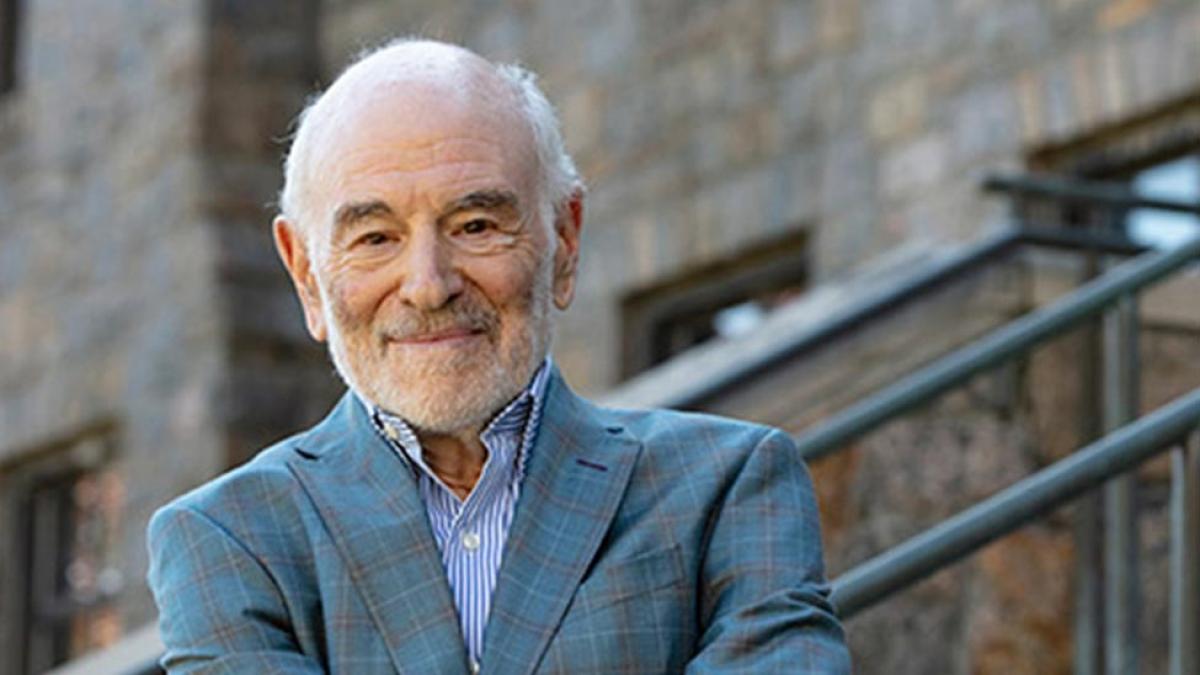
Op-Ed | Is Accidentally Causing A Person’s Death A Homicide?
Bennett L. Gershman, a distinguished professor at Pace University’s Elisabeth Haub School of Law, authored the amNY opinion piece exploring whether accidentally causing a person’s death can legally qualify as a homicide, using a recent Greenwich Village case to unpack the nuances of criminally negligent homicide under New York law.
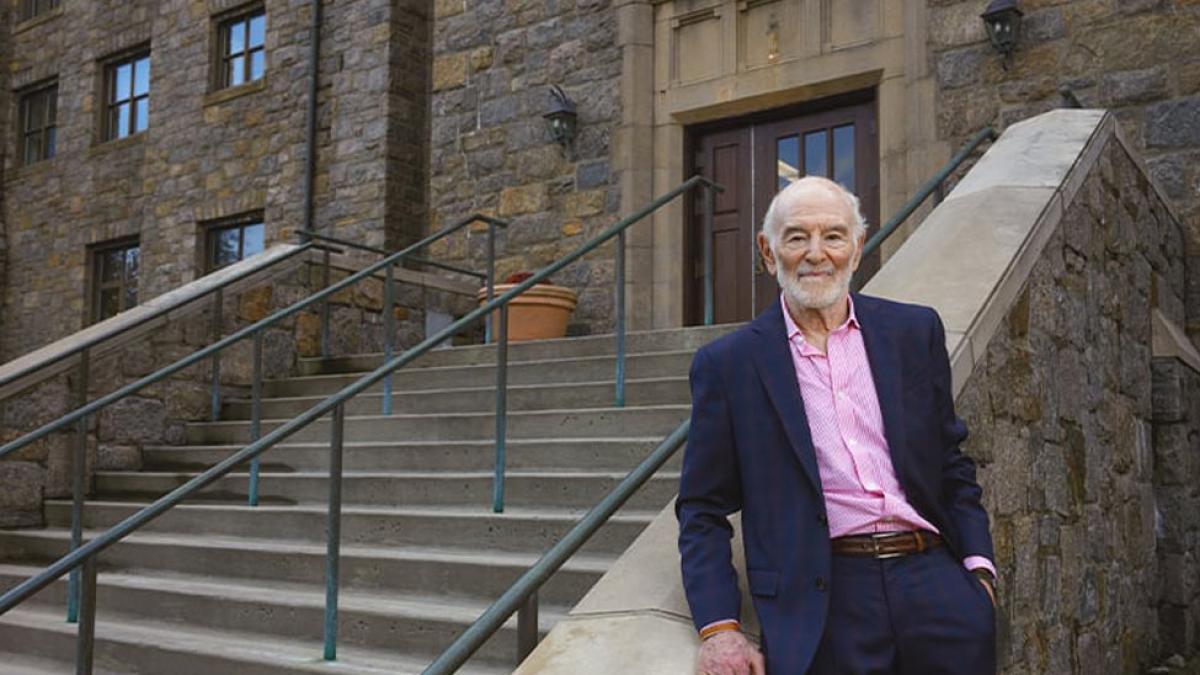
Kendall Jenner Addresses 'Mean' Speculation About Her Sexuality
Dyson Professor Melvin Williams appears in USA Today amid coverage of Kendall Jenner addressing speculation about her sexuality. Professor Williams situates the story within the broader dynamics of celebrity journalism, noting that while public curiosity is baked into fame, neither celebrities nor private individuals owe explanations about their sexual orientation. He emphasizes that disclosures should remain a matter of personal choice, not public pressure.

Many Epstein Files Have Been Released — And Two Princeton Alumni Have Legal Connections
The Daily Princetonian cites Bennett Gershman, a professor at Pace University’s Elisabeth Haub School of Law, in reporting on newly released Epstein files, noting his prior consideration as a potential expert witness in related proceedings.
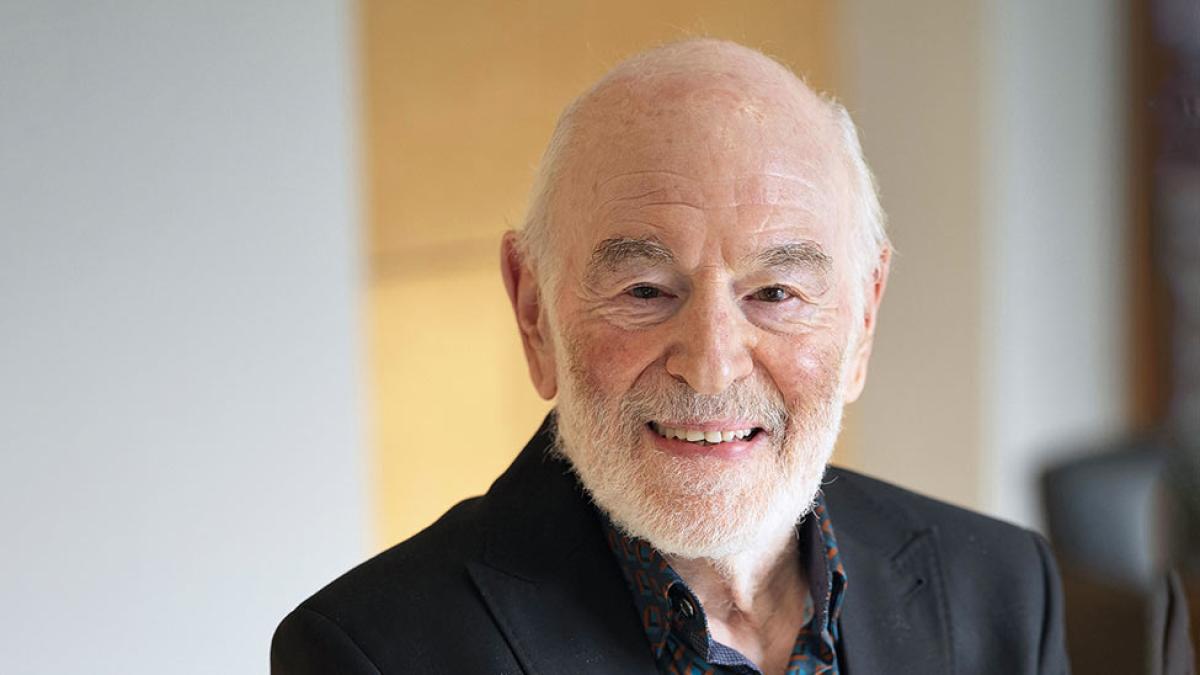
Commentary: Owasco Lake case highlights the value of New York's Green Amendment
Faculty Director of the Environmental Law Program and Professor Katrina Fischer Kuh writes a piece in Times Union about how New York’s Green Amendment can be used to advance environmental protections when regulatory processes stall. Drawing on a recent decision involving agricultural runoff into Owasco Lake, Professor Kuh explains how constitutional environmental rights can help enforce existing laws that protect water quality and public health.
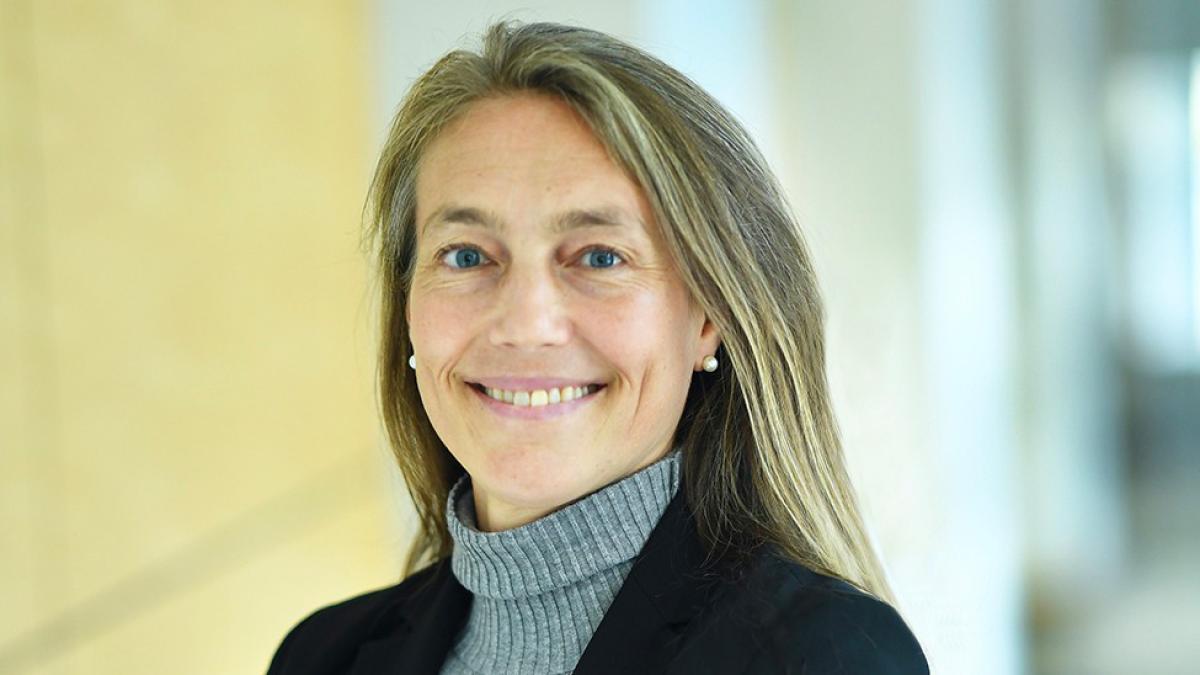
Asian Masculinity
Dyson Professor Seong-Jae Min pens an op-ed in The Korea Times examining shifting portrayals of Asian masculinity in media. He explores how representation—once dominated by Orientalist stereotypes—has evolved in ways that increasingly shape dating culture and social perception, demonstrating the media’s power to both reflect and influence society.
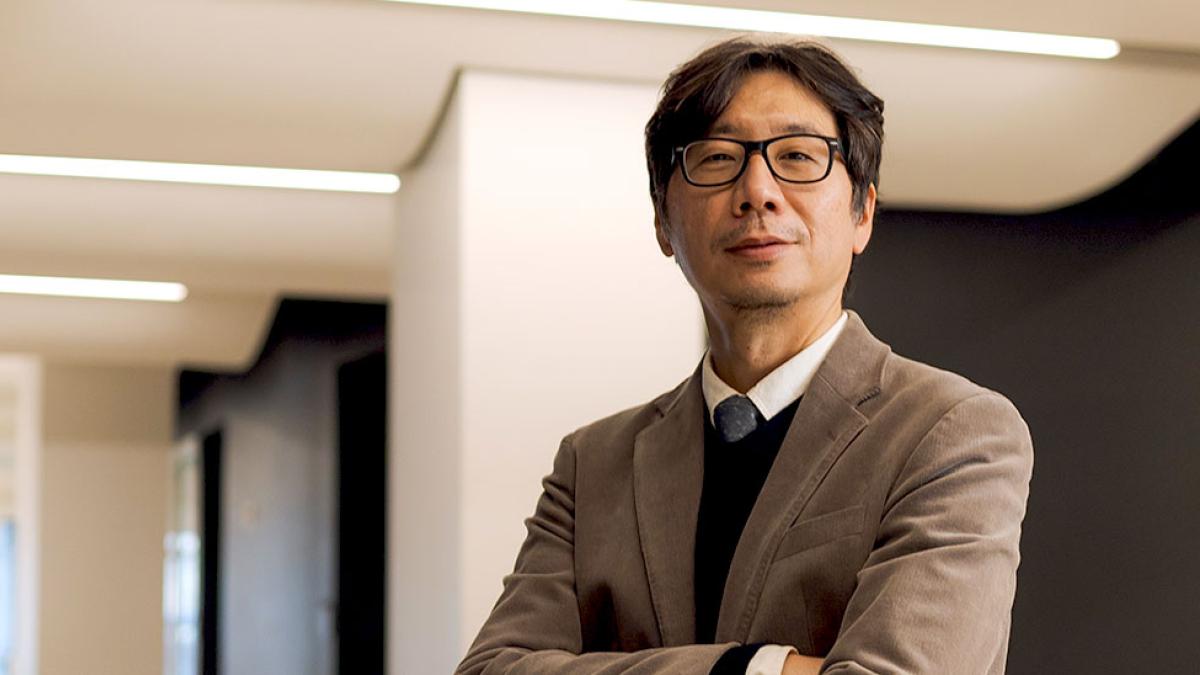
Pace University President Named AJC-Hosted Fulbright Specialist to Lead Transatlantic Effort Against Rising Antisemitism
The American Jewish Committee reports Pace President Marvin Krislov has begun work as a Fulbright Specialist hosted by AJC Paris, leading a joint U.S.–France initiative to address rising antisemitism and strengthen democratic resilience in higher education. The effort brings together academic, government, and civic leaders to identify policy solutions aimed at preventing antisemitism from becoming normalized, particularly among young people.
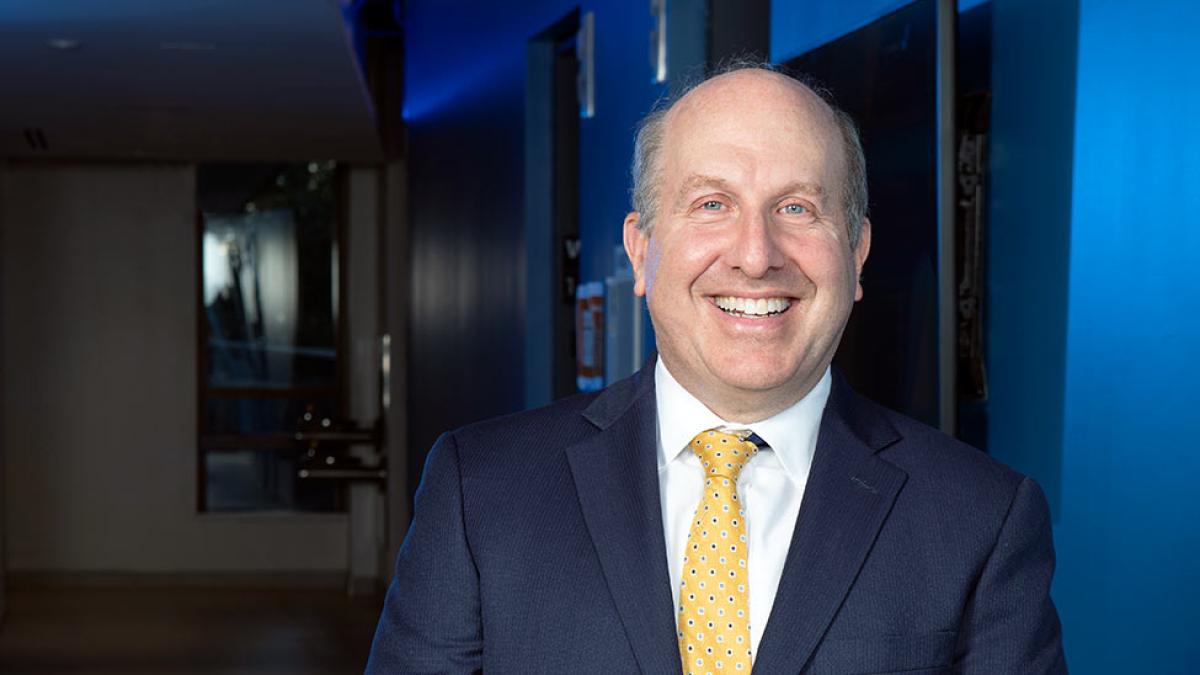
Metro North And MTA Win Summary Judgement In Lawsuit Filed By Local Residents Hoping To Abate Train Noise From The Croton-Harmon Yards.
Law Professor Todd Ommen provides a legal analysis to The Croton Chronicle following a judge’s dismissal of a lawsuit seeking to limit nighttime train noise at the Croton-Harmon rail yard. Professor Ommen says his team is disappointed with the ruling and plans to appeal.









